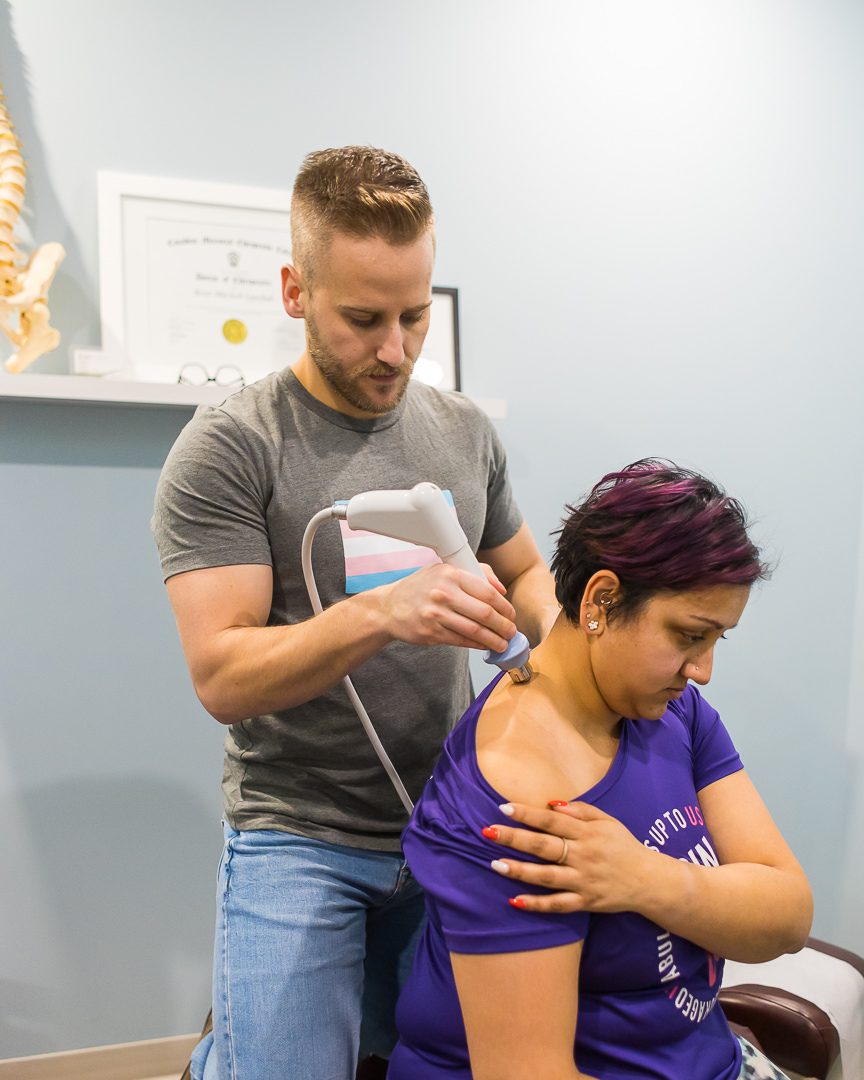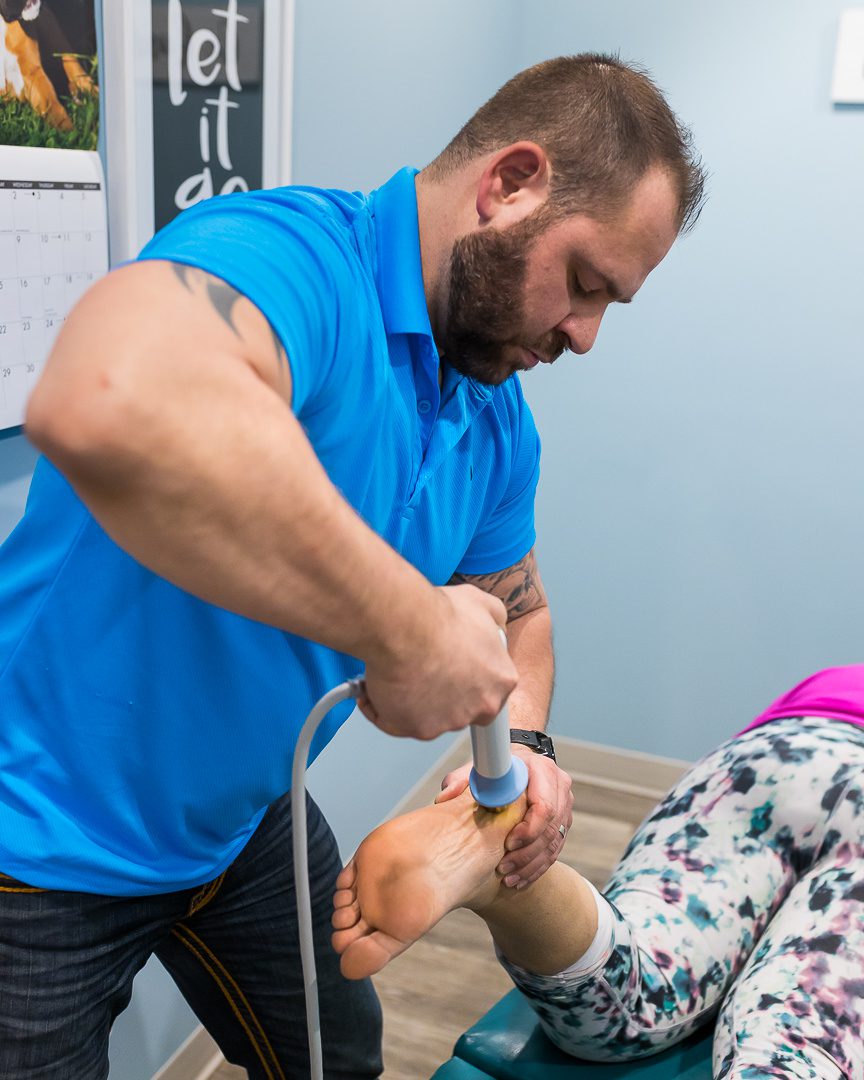Winter is coming.
We all know it, and we also know that poor driving weather can be a big factor in the instance of motor vehicle accidents (MVAs). Alberta has the highest historic rate of MVA injuries in Canada!
Whiplash is the primary injury we see with vehicle accidents, and it is one of the most concerning because it can easily become a chronic condition without proper and immediate treatment. Whiplash is caused by a movement where the head and neck are rapidly whipped back and forth. A common myth is that whiplash is only sustained during collisions at a higher rate of speed, however, even a low-speed accident may cause damage to the sensitive structures in the neck and upper back.
Symptoms of Whiplash
Whiplash may present immediately, but often the trauma is not apparent for days or weeks. The most common symptoms of a whiplash injury are:
- Pain, tenderness or stiffness in the neck, upper back, shoulder, or arms
- Reduced range of motion, pain, or difficulty with certain neck, head, or upper body movements
- Headaches, especially where there is a change in pain type, frequency, or location
- Tingling or numbness in the arms and hands
- Unexplained fatigue
- Dizziness or vertigo
More severe symptoms may include:
- Visual or auditory disruptions such as ringing in the ears or blurred vision
- Difficulty sleeping
- Personality changes, irritability, or depression
- Concentration and memory issues
Types of Whiplash
Whiplash is graded on a scale of one to four, and looks at both objective and subjective factors. Early and proper treatment can reduce the risk of developing additional conditions that are referred to as Whiplash-Associated Disorders (WADs).
Grade 1: Feelings of stiffness, pain, or tenderness. No detectable inflammation or physical damage.
Grade 2: Feelings of stiffness, pain, or tenderness as well as decreased range of motion and specific, localized discomfort in the muscles.
Grade 3: Feelings of stiffness, pain, or tenderness as well as nerve impingement or damage resulting in mobility restriction, tingling, numbness, or weakness.
Grade 4: Substantial pain and trauma including fractures or dislocations.
Even where a visit to a family doctor may not be required, we do recommend seeking chiropractic care as well as other modalities like acupuncture or massage. Slight changes in the way the body is held or used due to mild symptoms can affect other areas and result in additional body pain and misalignment.
What to Do After a Motor Vehicle Accident
In the case of an accident, it is important to seek a physical assessment regardless of pain level and tolerance, especially when a whiplash-type injury may be involved. A medical professional is the best option, as they are able to provide proper documentation should an insurance claim be required.
As your chiropractor, we can ensure you receive the proper assessment, diagnose conditions, and create a treatment plan to get you back to optimal health as soon as possible. Our focus will be on alignment, mobility, function, and strength, as well as pain management.
At Back to Motion, we have a multi-disciplinary team of chiropractic, massage, physiotherapy, shockwave, and acupuncture specialists in-house. Our wholistic approach to treating MVA injuries and whiplash integrates these services to provide our clients with superior results and faster healing.
Have you or someone you know been involved in an accident? Give us a call to learn more about how we can get you back to motion.











